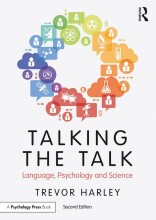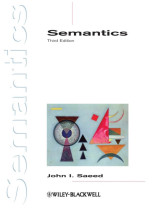Summary: Talking The Talk Language, Psychology And Science | 9781317627227 | Trevor A Harley
- This + 400k other summaries
- A unique study and practice tool
- Never study anything twice again
- Get the grades you hope for
- 100% sure, 100% understanding
Read the summary and the most important questions on Talking the Talk Language, Psychology and Science | 9781317627227 | Trevor A. Harley
-
1 Language
-
1.2 Origin of language
This is a preview. There are 5 more flashcards available for chapter 1.2
Show more cards here -
What theories about the origin of language are there?
Bow wow, heave ho, sing song, eureka!, hand gestures -
What physical features do we use to study the origin of language?
Larynx, articulatory apparatus, Broca's area, FOXP2 gene -
1.4 Models and theories
This is a preview. There are 2 more flashcards available for chapter 1.4
Show more cards here -
Characteristics of a good model
Falsifiable, involves concepts from outside the domain -
3 Children
-
3.1 Babbling
This is a preview. There are 4 more flashcards available for chapter 3.1
Show more cards here -
Arguments against the continuity hypothesis
Sometimes children babble and sometimes they might speak, parents encourage the production of every sound, children don't pronounce consonant clusters -
3.2 Speech segmentation
-
How do children segment speech?
Using statistical regularities -
What regularities might the child use?
Uncommon sounds combination (mp), sounds after a high-frequency word, frequent suffixes -
3.3 Learning words
This is a preview. There are 3 more flashcards available for chapter 3.3
Show more cards here -
Which two groups acquire what words first?
Referential group (objects first), expressive group (people and feelings first) -
Reasons for the mapping problem
Children hear a lot of words while looking at objects that could entail incorrect associations. Adults might be referring to a part of an object when naming it instead of the whole (and the other way around) -
4 Thought
-
4.1 cognition hypothesis
This is a preview. There are 7 more flashcards available for chapter 4.1
Show more cards here -
Arguments against cognition hypothesis
Cognitiveimpairment does not always entail languageimpairment , blind children show little difference in linguisticdevelopment, children acquire language before important cognitive development -
Piagets cognitive stages
Sensorimotor period, pre-operational stage, concrete operational stage, functional operational stage
- Higher grades + faster learning
- Never study anything twice
- 100% sure, 100% understanding
































